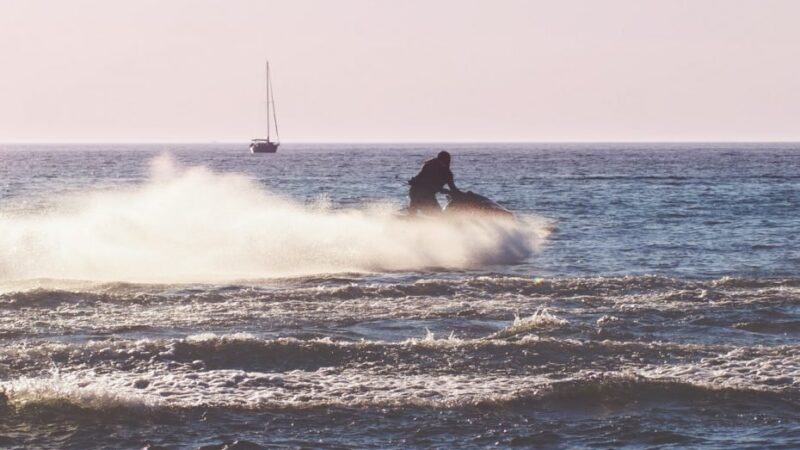Paralympics champion Markus Rehm said he looks forward to the day when Para athletes can compete against Olympians.
The German ‘Blade Jumper’ made the long jump pit look small when he leapt more than 8 metres through the air at the World Para Athletics Championships in Dubai.
Rehm, who lost his lower right leg in a boating accident when he was 14, said his vision is a championship where ‘able-bodied’ and para-athletes compete.
Some people say it’s a ‘rehabilitation sport’. They say it’s nice but the athletes are not as good. I want to show them they are wrong
Markus Rehm
“Athletics is our passion so why should we not compete together?,” he said.
“People watching the Olympics would be interested to see para-athletes because we compete on a high level, we are eye-to-eye. I hope it will happen one day.”
He could not fulfil his ambition to be part of the 2016 Rio Olympic Games over concerns that the blade gave him an unfair advantage.
But he maintains the prosthesis limits his performance since it slows his run-up compared to a regular athlete.
“I never had an accident thinking I want to be better than others. This was never my choice,” he said.
“I just replaced what I lost and I have trained as hard as I can to reach this mark.”
Speaking to The National at the games in Dubai this week, he told of his determination to push himself ever further.
“It feels like flying. You feel the energy going through your whole body,” said the 31-year-old, who competes in the T64 classification for athletes who run or jump with a prosthetic lower limb.
“I want to make the pit look small. Above 8 metres feels great but anything above 8.40m is like flying.”
The three-time Paralympic and six-time World champion set a world record of 8.48 metres in 2018 at the world championship in Berlin and recently hit the 8.50m mark at an unofficial event in Tokyo in August. He hopes to repeat this in official conditions.

Rehm has big ambitions as he aspires to beat 8.54m the all-time German record. He has already bested the 8.38m that won American Jeff Henderson gold at Rio in 2016.
The official World Record has remained unbroken since 1991 when Mike Powell socred 8.95 metres at the World Championships in Tokyo.
In Dubai, he continued his dominance in the field by clinching gold with 8.17m, almost a metre ahead of his nearest competitor.
“That’s my daily motivation – I want to see how far I can go.”
Rehm has come a long way since the accident a family holiday in Germany.
A wakeboarding sport enthusiast, he was being towed by a boat as he manoeuvred behind it strapped on to a wide board.
But he lost control, slipped into the river and could not dodge a boat directly behind because he was wearing a vest and his legs were fastened to the board.
The boat crashed into his leg and doctors amputated his leg under the right knee to save his life.
He initially struggled to accept his disability.
“I was always the sporty guy in school. I had a picture of myself in my head and suddenly the first time I saw myself in the mirror, I felt I was not a complete person,” Rehm told The National.
Displaying resilience that has become his hallmark, he went snowboarding that winter and returned to the accident spot the next summer on a wakeboard with a prosthesis.
“It was a triumph to go back,” he said.
“If you fail in something or something goes wrong, then my motivation is to do exactly the same again because I don’t want to be scared. I want to go back and face the fear.”
Rehm also takes on people who dismiss para-athletics as not a “proper” sporting event.
“Some people say it’s a rehabilitation sport. They say it’s nice but the athletes are not ‘as good’. I want to show them they are wrong.”
Sport helped him deal with the accident when a German para-sprinter introduced him to athletics at the age of 20.
“I didn’t want anyone setting my limits. That’s what I want to show young people that nobody, not even your parents are allowed to set your limits,” he said.





Recent Comments